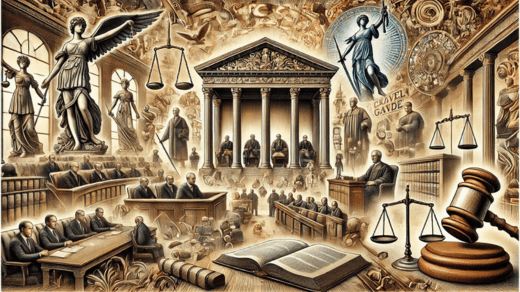General Knowledge of Constitutional Law
Definition of Constitutional Law
That is the law relating to or concerned with a country’s constitution. A country’s constitution is understood to bestow upon government and limit and protect individual rights and liberties.
Significance of Constitutional Law
Fundamental Rights
It forms the basis of government, stipulates power distribution, and provides assurance in constitutional respect of fundamental rights and liberties.
Read Also:
- https://insightfullawhelp.com/25-faqs-about-constitutional-rights-everyone-should-know/
- https://insightfullawhelp.com/30-constitutional-law-questions-for-students-and-professionals/
- https://insightfullawhelp.com/40-constitutional-law-topics-demystified-through-expert-answers/
Definition of Fundamental Rights
Rights provided under a constitution, such as freedom of speech, religion, and equal protection under the law.
What is separation of powers?
A doctrine that divides the power of government among legislative, executive, and judicial branches in order to avoid abuse of power.
What is judicial review?
The authority of courts to decide whether laws or acts are constitutional or not.
Structure and Functions of Government
What are checks and balances?
A system where each branch of government has the authority to limit the powers of other branches to keep them in balance.
What is federalism?
A system in which powers are distributed both at the national level (central government) and at the sub-national level (states or provinces).
What does the legislature do in constitutional law?
Formulate laws, which are mostly within the framework set by the constitution.
What is the role of the executive in constitutional law?
To implement and carry out provisions of laws as provided in the constitution.
What does the judiciary do in constitutional law?
Interpret laws, decide disputes, and ensure observance of the constitution.
Rights and Liberties
What are civil liberties?
Basic freedoms that are protected from government interference, such as freedom of speech, assembly, and religion.
What is the difference between civil rights and civil liberties?
Civil liberties are freedoms from government intrusion, while civil rights involve equal treatment under the law.
Can constitutional rights be limited?
Yes, under certain circumstances, rights can be restricted for public safety, order, or national security, but limitations must be reasonable and justifiable.
What is due process of law?
A constitutional guarantee ensuring fair legal proceedings and protections before deprivation of life, liberty, or property.
What is equal protection under the law?
A constitutional principle requiring that all individuals are treated equally by the government.
Constitutional Amendments and Changes
How can a constitution be amended?
Each constitution outlines its amendment process, which typically involves legislative approval and, in some cases, public referenda.
What is a constitutional convention?
A drafting or constitutional convention is often a consensus-building exercise that requires wide support.
What happens when the constitution and law are in conflict?
Laws conflicting with the constitution are declared unconstitutional and become void through judicial review.
Practical Implications
How does constitutional law affect life?
It affects rights like voting, freedom of speech, and protection against discrimination, making a difference in interactions between citizens and the government.
Can constitutional law be applied to private disputes?
Ordinarily, constitutional law regulates governmental action but certain principles extend into private litigation such as actions of discrimination.

